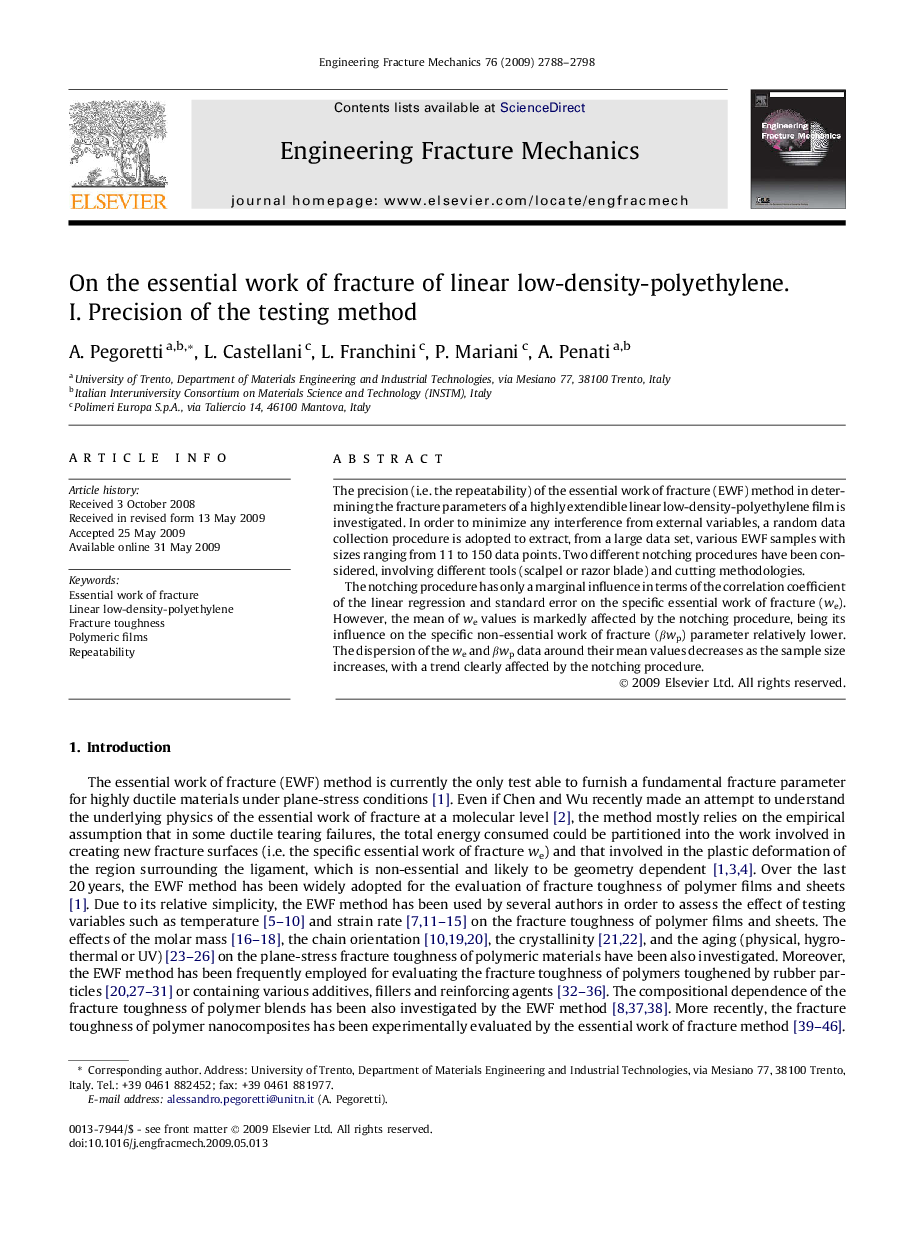| Article ID | Journal | Published Year | Pages | File Type |
|---|---|---|---|---|
| 775523 | Engineering Fracture Mechanics | 2009 | 11 Pages |
The precision (i.e. the repeatability) of the essential work of fracture (EWF) method in determining the fracture parameters of a highly extendible linear low-density-polyethylene film is investigated. In order to minimize any interference from external variables, a random data collection procedure is adopted to extract, from a large data set, various EWF samples with sizes ranging from 11 to 150 data points. Two different notching procedures have been considered, involving different tools (scalpel or razor blade) and cutting methodologies.The notching procedure has only a marginal influence in terms of the correlation coefficient of the linear regression and standard error on the specific essential work of fracture (we). However, the mean of we values is markedly affected by the notching procedure, being its influence on the specific non-essential work of fracture (βwp) parameter relatively lower. The dispersion of the we and βwp data around their mean values decreases as the sample size increases, with a trend clearly affected by the notching procedure.
